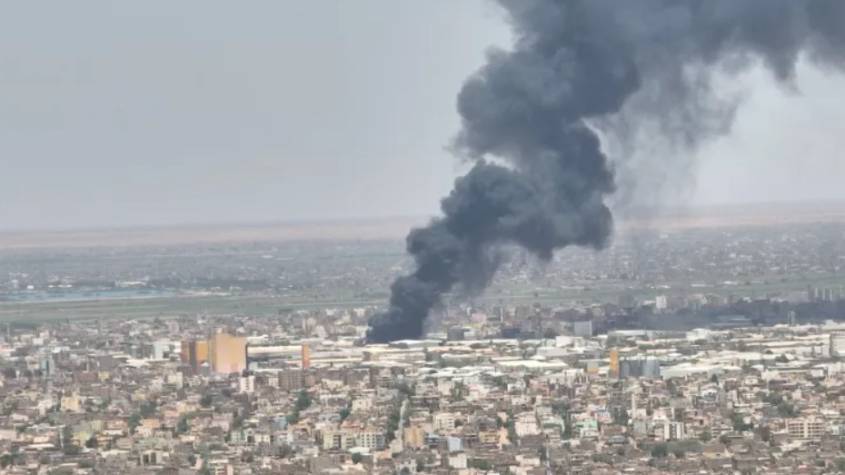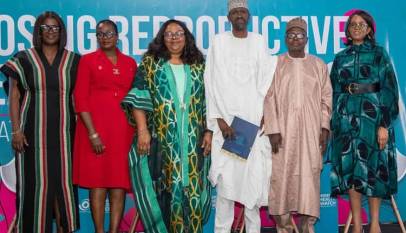OP-ED | Is the UN Really for Uniting Nations? The Failures of UNESCO in Sudan, By Sierra Williams
Have you ever wanted to work for the UN or UNESCO? Well I have. As someone who is really interested in foreign affairs and the humanities, I care a lot about intercultural exchange and understanding.
Yet, the UN and UNESCO is not as amazing as we think. Right now, there is an ongoing war, genocide, and cultural demolition of Sudan. Let me tell you, those who are interested in international relations, Africa, and policy, why and how UNESCO is currently failing Sudan.
“The United Nations Educational, Scienti1c and Cultural Organization is a specialized agency of the United Nations aimed at promoting world peace and security through international cooperation in education, arts, sciences and culture.” UNESCO is supposed to “actively
participat[e] in the creation of inclusive, safe and resilient cities, targeting, among other things, the conservation of humanity’s cultural and natural heritage (SDG 11).
The Organization is also working to ensure public access to information, the safety of journalists, and the promotion of good governance and the rule of law (SDG 1G).” However, as of now, this organization has not shown much care and initiative when it comes to the preservation of Sudan’s cultural heritage.
This is nothing new for Sudan; the country usually gets looked over, even though the rich cultural heritage of Sudan dates back thousands of years. In terms of its climates, terrain, natural characteristics, civilizations, and individuals, Sudan is a vast nation distinguished by heterogeneity, divergences, and diversity. Sudan’s diversity of cultures and communities has a rich history and heritage that is unmatched throughout the rest of Africa and the ancient world.
Sudan is known for its connection to the ancient Kingdom of Kush that governed commerce between southern Africa and Egypt during the period of the pharaohs, the Kerma civilization, ancient Nubian temples–with more pyramids than Egypt–as well as being the cradle of contemporary metalwork and pottery crafts. Therefore, destruction of these archaeological sites and artifacts in Sudan is greatly affecting the historical record and cultural heritage of Sudan but also of the world, as well.
Now, since mid-April, the rich historical record of Sudan, has been damaged by the war that has been ongoing between competing military forces. Sudanese archaeologists, curators, scholars, and volunteers are currently enduring intense 1ghting to once again conserve archaeological sites against warfare.
The north of the country, which is home to numerous archaeological sites and museums—such as the National Museum and its bioarcheological lab, the the tomb of the Mahdi ( Muhammad Ahmad), and the Khalifa Abdullahi Ibn Muhammad Museum—is under the jurisdiction of the Sudanese army.
Priceless academic documents as well as museums have been damaged already at the University of Omdurman al-Ahlia’s Social Science Library. Tens of thousands of historical objects in danger of being affected by the conflict in the country’s capital, Khartoum. Sites such as the Natural History Museum, have been begged to be preserved by heritage experts in Sudan in their appeals to warring factions.
Sudan has two UNESCO World Heritage Sites: Jebel Barkal, “a sacred sandstone mountain” near tombs, temples, and palaces scattered along the Nile River, and Meroe Island, which is about 270 miles north of Khartoum and “home to one of the largest ancient pyramid complexes in Africa”. Although the area of the sites are usually peaceful, the location has placed them near some of the most intense 1ghting.
Thus, the UN’s UNESCO needs to take greater action to protect Sudan’s archaeological sites and artifacts. It is their responsibility, yet, they have not taken enough action. For instance, Mr.
Suleiman, the manager of the Meroe Island UNESCO World Heritage site a rms that the sites are at greater chances of being looted or suffering from environmental damages.
Further, Suleiman states, “Meroe suffers…but there is no more money to protect the sites.” The ongoing conflict has put ancient artifacts and Sudan’s rich cultural heritage at danger and there is a vital need for site conservation at this time but UNESCO has not provided nearly as much in this effort.
George Papagiannis, UNESCO Chief of Mission in Sudan stated, “We are finalizing the heritage emergency fund for Sudan and whenever we are able to reach these places safely we can start our work.” However, it is unclear how much of a positive effect these efforts have had on protecting these sites.
It is clear that the UN and UNESCO are not fully doing their part to prevent any further conflict and demolition of Sudan’s people, cultural heritage, and historical record. Some may say it is not UNESCO’s sole responsibility, especially since Sudan is often an overlooked country that isn’t known by many for their rich cultural heritage and contribution to the world’s historical record.
Yet, many smaller organizations have been providing more aid, protection, and volunteering to
these sites, even though Sudan’s UNESCO World Heritage sites were inscribed more than a decade ago by UNESCO, a very powerful and well funded organization mind you.
We need to urge UNESCO to really show that they stand for “the conservation of humanity’s cultural and natural heritage.”

















